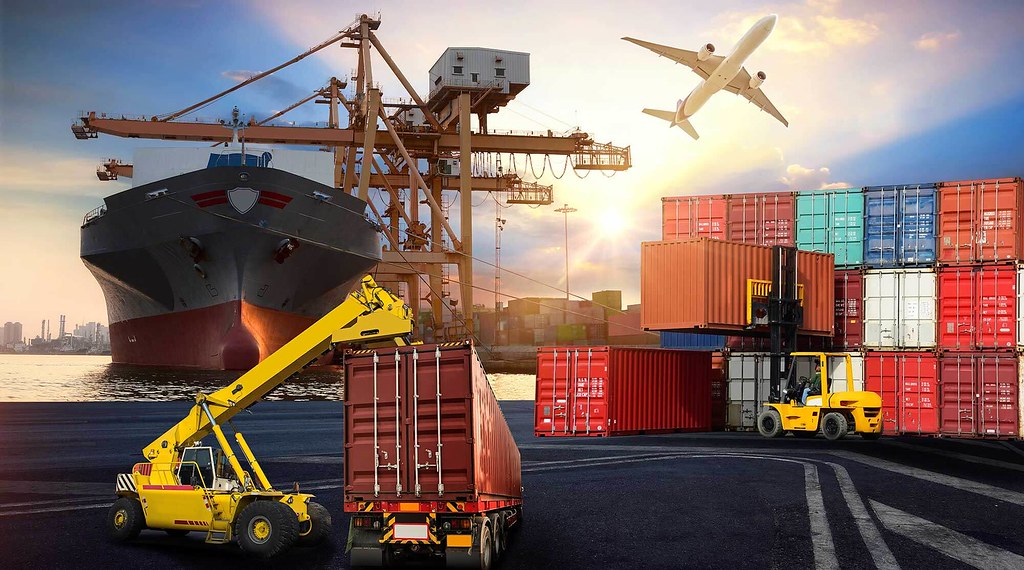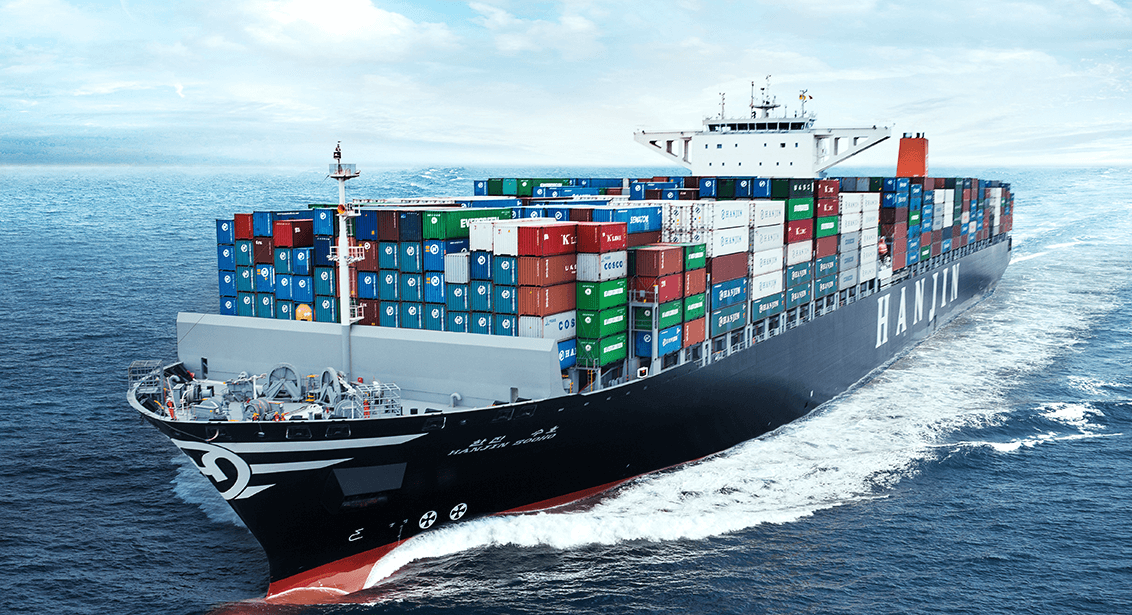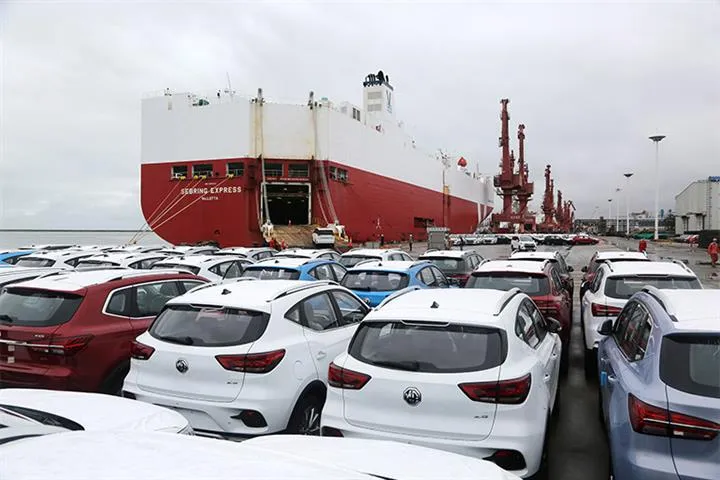In today’s global marketplace, effectively managing the logistics of importing goods is crucial for businesses looking to thrive. Hiring a freight forwarder is an essential step in this process, particularly for those sourcing products from China to Turkey. With a myriad of options available, understanding the step-by-step process of selecting and working with a freight forwarder can significantly streamline operations and ensure that your shipments are handled efficiently and safely. This guide will provide you with essential insights into the intricacies of freight forwarding, emphasizing key considerations and best practices to facilitate a successful partnership. Whether you’re a seasoned importer or new to international trade, navigating this process effectively can lead to enhanced logistics management and improved business outcomes.

Understanding Freight Forwarding: What You Need to Know
Freight forwarding is a critical component in the global trade ecosystem, acting as an intermediary between shippers and various transportation services. This complex process involves the coordination of logistics, transportation, and documentation to ensure that goods move from one location to another efficiently and safely.
A. What Does a Freight Forwarder Do?
A freight forwarder is responsible for managing shipping logistics on behalf of importers and exporters. Their expertise lies in the following key areas:
- Transportation Coordination: They select the best mode of transport (air, sea, rail, or road) based on factors such as cost, speed, and nature of the goods.
- Documentation Management: Freight forwarders handle all necessary paperwork, including bills of lading and customs declarations, to ensure compliance with regulations.
- Customs Clearance: They facilitate the customs clearance process, minimizing delays and ensuring all duties and taxes are paid.
- Cargo Insurance: Many freight forwarders offer insurance services to protect cargo against potential loss or damage during transit.
- Warehousing Solutions: They often provide warehouse services, offering short-term storage solutions that can help manage inventory effectively.
B. Types of Freight Forwarding Services
Freight forwarding services can be categorized into several types based on the mode of transportation and specific requirements:
| Service Type | Description |
|---|---|
| Air Freight | Fast transportation via air; suitable for urgent and high-value goods. |
| Sea Freight | Cost-effective for large volumes; involves shipping via containers. |
| Land Freight | Road and rail transport; useful for regional shipping and inland transport. |
| Door-to-Door Shipping | Comprehensive service that includes pickup and delivery directly to the customer’s door. |
Understanding these services allows businesses to choose the most appropriate logistics strategy for their specific needs.
C. Key Terms in Freight Forwarding
Familiarity with certain terms can help demystify the process:
- Bill of Lading: A document issued by the carrier to acknowledge receipt of cargo for shipment.
- Incoterms: Standard trade terms that outline the responsibilities of buyers and sellers in international transactions.
- Customs Bond: A contract guaranteeing that duties, taxes, and penalties owed to customs will be paid.
By understanding these concepts, businesses can navigate the complexities of freight forwarding more effectively.
Importance of Choosing the Right Freight Forwarder for Your Business
Choosing the right freight forwarder is essential for businesses engaged in international trade. The right partner can streamline logistics, reduce costs, and enhance customer satisfaction.
A. Impact on Cost and Efficiency
The choice of a freight forwarder directly influences the overall logistics cost and operational efficiency. A competent freight forwarder can negotiate better rates with carriers and optimize shipping routes, which can lead to significant cost savings for your business. Here are several factors to consider in this context:
- Reputation and Experience: Established freight forwarders with a proven track record can offer reliable services and insights into potential issues in the shipping process.
- Network and Relationships: A freight forwarder with a robust network of carriers and logistics providers can provide more options and competitive pricing.
B. Risk Management
Freight forwarding involves various risks, including delays and cargo damage. Choosing a forwarder that offers comprehensive insurance services can mitigate these risks. Key considerations include:
- Claims Process: Understand how the forwarder handles insurance claims, as a swift process can reduce potential financial losses.
- Cargo Tracking: Opt for a forwarder that provides real-time cargo tracking, allowing you to stay informed about the status of your shipments.
C. Customer Support and Communication
Effective communication is crucial in freight forwarding. A forwarder that offers excellent customer support can address queries promptly and provide updates on shipment status. Factors to evaluate include:
- Availability: Is the forwarder accessible during your business hours?
- Language Proficiency: Ensure that there are no language barriers that could lead to misunderstandings.
D. Alignment with Business Goals
Your freight forwarder’s capabilities should align with your business goals. Whether you’re focusing on cost reduction, speed, or reliability, the right partner can help you achieve these objectives effectively. For instance, if you’re looking to expand into new regions, a freight forwarder with expertise in Shipping from China to Europe or Shipping from China to the United States can provide valuable insights and support.
Choosing a freight forwarder like Dantful International Logistics can empower your business with highly professional, cost-effective, and high-quality one-stop international logistics services tailored to meet your specific needs. With a focus on streamlined processes and customer satisfaction, Dantful is well-equipped to support your global trading endeavors.
Shipping From China to Middle East Countries:
- Shipping from China to Saudi Arabia
- Shipping from China to UAE
- Shipping from china to KUWAIT
- Shipping From China To EGYPT
- Shipping from China to Bahrain
- Shipping From China To Jordan
- Shipping From China To Israel
- Shipping from China to Qatar
- Shipping From China To IRAQ
- Shipping from China to Iran
Step 1: Identifying Your Shipping Needs
Before engaging a freight forwarder, it is essential to clearly identify your shipping requirements. This step plays a critical role in ensuring that your logistics strategy aligns with your business goals and operational needs.
Determining the Type of Goods to Ship
The nature of your goods significantly influences the shipping process. Here are key aspects to consider:
-
Classification of Goods: Goods can be classified into various categories such as perishable, hazardous, oversized, or standard merchandise. Understanding the classification helps in determining the necessary handling and regulatory requirements.
-
Packaging Requirements: Some items may require specialized packaging to prevent damage during transit. For example, fragile items may need additional cushioning, while hazardous materials must comply with specific labeling and packaging regulations.
-
Customs Regulations: Different goods are subject to varying customs regulations. Certain items may require specific documentation or permits for international shipping. It’s vital to research and understand these regulations to avoid delays.
Assessing Volume and Weight Requirements
Accurate assessment of the volume and weight of your shipment is crucial for cost estimation and logistics planning. Key considerations include:
-
Dimensional Weight Pricing: Many carriers use a pricing model based on dimensional weight, which takes into account the size and weight of the package. Calculate both the actual weight and dimensional weight to ensure you select the most cost-effective shipping option.
-
Volume of Shipment: Assess whether you are shipping small parcels, full container loads (FCL), or less-than-container loads (LCL). This determination will affect your choice of shipping method and freight forwarder.
-
Future Projections: Consider any anticipated changes in shipping needs. For instance, if you plan to scale your business, understanding potential volume increases can assist in forming a long-term relationship with a freight forwarder.
Choosing the Appropriate Shipping Method (Air vs. Sea)
Selecting the right shipping method is pivotal to achieving a balance between cost and speed. The decision should be based on several factors:
Speed: Air freight is significantly faster than sea freight, making it suitable for time-sensitive shipments, such as perishable goods or urgent orders. However, it is also more expensive.
Cost: Sea freight is typically the most cost-effective option for large shipments or bulk goods, but transit times can be longer. It’s crucial to weigh the cost against the urgency of the shipment.
-
Nature of Goods: Certain items, like electronics, may be better suited for air shipping due to higher value and demand for speed, while heavy machinery or raw materials may warrant sea freight due to their bulk.
By thoroughly assessing your shipping needs, you can make informed decisions that will streamline your logistics processes and enhance overall efficiency.
Step 2: Researching Potential Freight Forwarders
Once you have a clear understanding of your shipping requirements, the next step involves researching potential freight forwarders. Choosing the right freight forwarder is essential for ensuring a smooth shipping experience.
Utilizing Online Platforms and Directories
The internet provides a wealth of resources for sourcing freight forwarders. Here are several effective methods:
-
Freight Forwarder Directories: Websites such as Freightnet and the Freight Forwarders Association list credible freight forwarding companies. These directories often include company profiles, services offered, and contact information.
-
Online Platforms: Platforms like Alibaba or Global Sources not only facilitate trade but also feature freight forwarding services. Many suppliers are associated with reliable forwarders and can recommend options based on your shipping needs.
-
Industry Associations: Membership in associations such as the International Federation of Freight Forwarders Associations (FIATA) can lend credibility to freight forwarders. Check their membership status to ensure you are dealing with a reputable provider.
Evaluating Industry Experience and Specialization
Not all freight forwarders have the same level of expertise or focus on specific industries. Key evaluation criteria include:
-
Years of Operation: A freight forwarder with significant industry experience is likely to have established networks and better knowledge of logistics challenges.
-
Specialization: Depending on your goods, it may be beneficial to select a forwarder with specialized services. For instance, if you are shipping electronics, a forwarder with experience in handling such products can navigate the specific requirements seamlessly.
-
Regulatory Knowledge: A knowledgeable forwarder should be familiar with customs regulations specific to the countries you are exporting to and importing from. This expertise can minimize delays and ensure compliance.
Checking Reviews and Testimonials
Customer feedback is a valuable resource when assessing potential freight forwarders. Consider the following:
-
Online Reviews: Websites like Trustpilot or Google Reviews offer insights into customer experiences with freight forwarders. Look for consistent feedback regarding reliability, responsiveness, and service quality.
-
Case Studies and Testimonials: Many freight forwarders provide case studies or testimonials on their websites. These documents often showcase their successful logistics solutions and satisfied clients, which can help gauge their effectiveness.
-
Referral Recommendations: Reach out to other businesses or industry contacts for personal recommendations. A referral from a trusted source can lead to finding a reliable freight forwarder that aligns with your needs.
Through diligent research and evaluation, you can identify a freight forwarder that will not only meet your shipping needs but also enhance your overall logistics strategy. Dantful International Logistics stands out as a highly professional, cost-effective partner offering a comprehensive suite of services, including Door-to-Door Shipping and Customs Clearance, ensuring that your goods are managed efficiently from start to finish.
Step 3: Evaluating Services Offered by Freight Forwarders
When selecting a freight forwarder, it is essential to evaluate the range of services they offer. A comprehensive service package can significantly enhance the efficiency and reliability of your shipping operations.
Understanding Customs Clearance and Documentation Services
Customs clearance is a crucial aspect of international shipping. It involves the preparation and submission of necessary documentation to ensure that your goods meet all regulatory requirements. Key points to consider include:
- Expertise in Customs Regulations: A proficient freight forwarder must possess in-depth knowledge of customs regulations, tariffs, and duties specific to the countries involved in your shipments. This expertise helps to avoid penalties and delays.
- Documentation Management: The freight forwarder should handle all necessary paperwork, including:
- Commercial Invoices: These detail the transaction terms and facilitate the customs process.
- Packing Lists: These outline the contents of the shipment, providing clarity and aiding in customs inspections.
- Certificates of Origin: Required for certain goods, these certificates indicate the origin of the products and may be necessary for tariff exemptions.
- Clearance Process: Engage with potential freight forwarders about their customs clearance process. A streamlined process can save time and prevent unexpected hiccups during shipment transit.
Assessing Additional Services: Insurance, Packaging, and Warehousing
Freight forwarders often provide additional services that can enhance your overall shipping experience. These include:
- Insurance Services: Coverage for your cargo against loss or damage is vital for risk management. Inquire about the insurance policies offered by the forwarder, including:
- Types of Coverage: Understand the extent of coverage for different scenarios (e.g., theft, damage, natural disasters).
- Claims Process: Knowing how claims are handled can provide peace of mind. A quick and efficient claims process can mitigate potential financial losses.
- Packaging Solutions: Proper packaging is essential for protecting goods during transit. Evaluate whether the freight forwarder offers specialized packaging services tailored to your products, ensuring they meet shipping standards and regulations.
- Warehouse Services: If your business requires storage solutions, inquire about warehousing capabilities. Consider aspects such as:
- Location: Proximity to major transportation hubs can reduce delivery times and costs.
- Inventory Management: Some freight forwarders offer inventory management systems that allow you to monitor stock levels and optimize order fulfillment.
Inquiring About Tracking and Customer Support
Transparent communication and tracking are vital in freight forwarding. Assess the following:
- Tracking Capabilities: A reliable freight forwarder should provide real-time tracking options, enabling you to monitor the status and location of your shipments throughout the transportation process.
- Customer Support: Evaluate the level of customer support provided. Key points include:
- Accessibility: Ensure that the forwarder is available during your business hours for immediate assistance.
- Responsiveness: A good freight forwarder should have efficient channels of communication to address any questions or concerns promptly.
By evaluating these services offered by freight forwarders, you can ensure that you partner with a provider that meets your logistical needs while enhancing the security and efficiency of your shipments.
Step 4: Comparing Quotes and Pricing Structures
Once you have a list of potential freight forwarders, the next step is to compare their quotes and pricing structures. A thorough analysis can help you secure the best deal while ensuring quality service.
Analyzing Cost Components: Shipping, Handling, and Insurance
Understanding the various cost components is essential when evaluating quotes. Key factors include:
-
Shipping Costs: These are typically determined by the mode of transport selected (air, sea, or land) and are influenced by the distance, weight, and dimensions of your shipment. Make sure to ask for detailed breakdowns of these costs.
-
Handling Fees: Some freight forwarders charge handling fees for services such as loading and unloading, packaging, and storage during transit. Clarify these charges during the quoting process.
-
Insurance Premiums: If insurance is required, inquire about the costs associated with different policy options. Ensure you understand what is covered and any exclusions that may apply.
Understanding Pricing Models: FCL vs. LCL
The pricing structure can significantly influence your shipping costs. Familiarize yourself with the following models:
-
Full Container Load (FCL): This model is typically more cost-effective for large shipments that can fill an entire container. Costs are charged per container, regardless of whether the container is fully utilized. FCL is generally faster and involves less risk of damage since it minimizes handling.
-
Less-than-Container Load (LCL): This model is suitable for smaller shipments that do not require a full container. Costs are calculated based on the volume or weight of the cargo. While LCL can lower shipping costs for smaller loads, it may involve longer transit times due to multiple stops and handling.
Negotiating Terms and Conditions
Once you have assessed quotes and pricing structures, engage in negotiations with selected freight forwarders. Key considerations include:
-
Service Agreements: Review the terms and conditions outlined in the service agreement. Ensure that all aspects of the service, including delivery timelines, responsibilities, and liabilities, are clearly defined.
-
Incentives and Discounts: Explore potential discounts for long-term contracts or high-volume shipments. Many freight forwarders offer incentives that can enhance your overall savings.
-
Flexibility: Confirm the forwarder’s willingness to accommodate changes in shipping schedules or routes, as flexibility can be crucial to your business operations.
By carefully comparing quotes and thoroughly understanding pricing structures, you can make an informed choice that aligns with your shipping needs and budget. Partnering with a reputable freight forwarder like Dantful International Logistics ensures access to comprehensive logistics solutions, including Insurance Services and Warehouse Services, tailored to support your global trading activities effectively.
Step 5: Verifying Credentials and Compliance
Before finalizing your partnership with a freight forwarder, it is crucial to verify their credentials and ensure compliance with relevant regulations. This step will help safeguard your shipments and mitigate potential risks associated with international trade.
Checking Licenses and Certifications
- Freight Forwarder Licensing: Ensure that the freight forwarder holds the necessary licenses to operate in their respective jurisdictions. In many countries, freight forwarders must be registered with relevant authorities, such as the Federal Maritime Commission (FMC) in the U.S. or corresponding agencies in other countries. Request verification of their licenses.
- Certifications: Look for additional certifications that demonstrate the forwarder’s professionalism and industry standards. Common certifications include:
- ISO Certification: Indicates adherence to international standards for quality management systems.
- C-TPAT Certification: Certifies compliance with the Customs-Trade Partnership Against Terrorism, ensuring enhanced security measures in the supply chain.
- Professional Memberships: Membership in reputable industry organizations, such as the International Federation of Freight Forwarders Associations (FIATA), can provide assurance of the forwarder’s credibility and commitment to best practices.
Understanding Regulatory Requirements for Shipping to Turkey
Shipping goods to Turkey involves navigating specific regulatory requirements. Key considerations include:
- Customs Regulations: Familiarize yourself with Turkey’s customs regulations, which dictate what documentation is needed for imports. This includes:
- Commercial Invoices: Required for all shipments, detailing the value and description of goods.
- Import Permits: Certain goods may require specific permits or licenses before they can enter Turkey.
- Tariffs and Duties: Understand the applicable tariffs and duties that will be levied on your goods upon entry into Turkey. The Turkish government utilizes a Harmonized System (HS) code to classify products and determine duty rates.
- Prohibited and Restricted Goods: Research any restrictions or prohibitions on specific goods to avoid customs issues. Certain products, such as hazardous materials, may have additional requirements or outright bans.
Ensuring Risk Management and Insurance Coverage
Engaging a freight forwarder that prioritizes risk management is vital for protecting your shipments. Consider the following:
- Insurance Options: Ensure that your freight forwarder offers comprehensive insurance services that cover potential risks during transit. Examine the types of coverage available, including:
- All-Risk Coverage: Provides protection against a broad range of risks, including damage, theft, and loss.
- Named Perils Coverage: Covers only specific risks that are explicitly listed in the policy.
- Risk Mitigation Strategies: Evaluate the forwarder’s strategies to minimize risks throughout the shipping process. This could include:
- Cargo Tracking: Implementing tracking systems to monitor shipments in real-time.
- Security Measures: Employing security protocols when handling and storing cargo.
By thoroughly verifying credentials and understanding regulatory requirements, you can make informed decisions that mitigate risks associated with shipping to Turkey.
Step 6: Finalizing the Agreement
Once you have identified a suitable freight forwarder, the next step is to finalize the agreement. This stage sets the foundation for a successful partnership.
Reviewing Contract Terms and Conditions
- Contract Clarity: Carefully review the terms and conditions outlined in the freight forwarding contract. Look for clarity in each clause, ensuring there are no ambiguities regarding the services to be provided.
- Liability Clauses: Understand the liabilities outlined in the contract. Determine the extent to which the forwarder is responsible for potential losses and damages during transit, and clarify any limitations on liability.
- Termination Clauses: Be aware of the conditions under which either party can terminate the agreement. Having exit strategies outlined can prevent complications should the need to end the relationship arise.
Establishing Clear Communication Channels
- Primary Points of Contact: Identify the primary points of contact within the freight forwarder’s organization. This should include both operational contacts and management contacts for escalated issues.
- Communication Protocols: Establish clear communication protocols, including preferred methods of contact (email, phone, etc.) and expected response times for inquiries. This ensures that any issues can be addressed promptly.
- Regular Updates: Agree on a schedule for regular updates regarding shipment status, documentation requirements, and any potential issues that may arise during transit.
Setting Up Payment Terms and Invoicing Processes
- Payment Structure: Discuss and finalize the payment structure. Evaluate aspects such as:
- Payment Frequency: Determine whether payments will be made upfront, upon delivery, or at predefined milestones.
- Payment Methods: Agree on acceptable payment methods, such as bank transfers, credit cards, or online payment platforms.
- Invoicing Processes: Clarify invoicing processes, including:
- Invoice Timing: Establish when invoices will be issued and the timeline for payment.
- Dispute Resolution: Agree on procedures for handling any discrepancies in billing or payment disputes.
By finalizing the agreement with thorough attention to detail, you ensure a solid foundation for your shipping operations, paving the way for a successful logistics partnership.
Step 7: Preparing for Shipment
Preparation is a critical phase in the shipping process. Proper organization and compliance with regulations will help ensure a smooth transition for your goods.
Organizing Necessary Documentation
- Essential Documents: Gather all necessary documents required for shipping. This includes:
- Commercial Invoice: Must include details of the transaction, such as the buyer, seller, and description of the goods.
- Packing List: Provides detailed information about the contents of the shipment, including itemized lists and quantities.
- Certificates: Depending on the goods, you may need to provide certificates of origin, inspection certificates, or other relevant documentation.
- Customs Declarations: Prepare customs declarations accurately to avoid delays at the border. Ensure that all information is correct and matches the documentation provided.
Coordinating Pickup and Delivery Details
- Pickup Arrangements: Coordinate with your freight forwarder to establish pickup arrangements for your goods. Ensure that the pickup location is accessible and that all parties are aware of the schedule.
- Delivery Instructions: Clearly communicate delivery instructions to the freight forwarder, including the final destination and any special requirements for unloading.
- Timing Considerations: Factor in timing considerations for both pickup and delivery, especially if working with tight schedules or time-sensitive shipments.
Ensuring Compliance with Turkish Import Regulations
- Import Permit Requirements: Verify whether your goods require an import permit to enter Turkey. If needed, ensure all permits are acquired prior to shipment.
- Labeling and Marking: Ensure that all goods are labeled and marked in compliance with Turkish regulations, including proper identification for hazardous materials if applicable.
- Pre-Arrival Notifications: Some regulations may require pre-arrival notifications to Turkish customs authorities. Check with your freight forwarder regarding these requirements and ensure timely notifications are submitted.
Through careful preparation and attention to detail, you can facilitate a smooth shipping process and ensure compliance with Turkish regulations. Partnering with a reliable freight forwarder like Dantful International Logistics can enhance your shipping experience, providing comprehensive support throughout the entire logistics journey.

Young Chiu is a seasoned logistics expert with over 15 years of experience in international freight forwarding and supply chain management. As CEO of Dantful International Logistics, Young is dedicated to providing valuable insights and practical advice to businesses navigating the complexities of global shipping.





















 Afrikaans
Afrikaans Shqip
Shqip አማርኛ
አማርኛ العربية
العربية Հայերեն
Հայերեն Azərbaycan dili
Azərbaycan dili Euskara
Euskara Беларуская мова
Беларуская мова বাংলা
বাংলা Bosanski
Bosanski Български
Български Català
Català Cebuano
Cebuano Chichewa
Chichewa 简体中文
简体中文 繁體中文
繁體中文 Corsu
Corsu Hrvatski
Hrvatski Čeština
Čeština Dansk
Dansk Nederlands
Nederlands English
English Esperanto
Esperanto Eesti
Eesti Filipino
Filipino Suomi
Suomi Français
Français Galego
Galego ქართული
ქართული Deutsch
Deutsch Ελληνικά
Ελληνικά Kreyol ayisyen
Kreyol ayisyen Harshen Hausa
Harshen Hausa Ōlelo Hawaiʻi
Ōlelo Hawaiʻi עִבְרִית
עִבְרִית हिन्दी
हिन्दी Hmong
Hmong Magyar
Magyar Íslenska
Íslenska Igbo
Igbo Bahasa Indonesia
Bahasa Indonesia Gaeilge
Gaeilge Italiano
Italiano 日本語
日本語 Basa Jawa
Basa Jawa ಕನ್ನಡ
ಕನ್ನಡ Қазақ тілі
Қазақ тілі ភាសាខ្មែរ
ភាសាខ្មែរ 한국어
한국어 كوردی
كوردی Кыргызча
Кыргызча ພາສາລາວ
ພາສາລາວ Latin
Latin Latviešu valoda
Latviešu valoda Lietuvių kalba
Lietuvių kalba Lëtzebuergesch
Lëtzebuergesch Македонски јазик
Македонски јазик Malagasy
Malagasy Bahasa Melayu
Bahasa Melayu മലയാളം
മലയാളം Maltese
Maltese Te Reo Māori
Te Reo Māori मराठी
मराठी Монгол
Монгол ဗမာစာ
ဗမာစာ नेपाली
नेपाली Norsk bokmål
Norsk bokmål پښتو
پښتو فارسی
فارسی Polski
Polski Português
Português ਪੰਜਾਬੀ
ਪੰਜਾਬੀ Română
Română Русский
Русский Samoan
Samoan Gàidhlig
Gàidhlig Српски језик
Српски језик Sesotho
Sesotho Shona
Shona سنڌي
سنڌي සිංහල
සිංහල Slovenčina
Slovenčina Slovenščina
Slovenščina Afsoomaali
Afsoomaali Español
Español Basa Sunda
Basa Sunda Kiswahili
Kiswahili Svenska
Svenska Тоҷикӣ
Тоҷикӣ தமிழ்
தமிழ் తెలుగు
తెలుగు ไทย
ไทย Türkçe
Türkçe Українська
Українська اردو
اردو O‘zbekcha
O‘zbekcha Tiếng Việt
Tiếng Việt Cymraeg
Cymraeg יידיש
יידיש Yorùbá
Yorùbá Zulu
Zulu